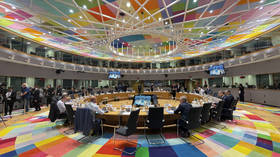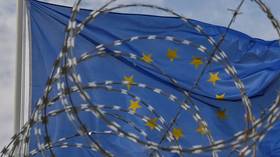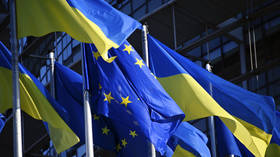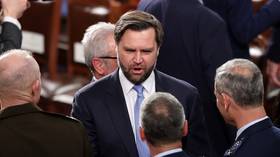EU faces internal row over admission process – media

European Union members have been locked in heated debates since Ukraine and Moldova were granted candidate status, Germany’s Die Welt has reported. The news comes after Western Balkan states voiced their frustration at the admittance process.
According to the newspaper, Thursday’s summit between 27 EU leaders and six heads of government from the Western Balkans was expected to be a big breakthrough in regards to accession talks. Among the topics announced was the long-awaited accession process for North Macedonia and Albania, who have been on the EU waiting list for 17 and eight years respectively.
However, those talks never came to pass, after Bulgaria expressed opposition to the acceptance of North Macedonia, citing long-running disputes over language, history, and the rights of the Bulgarian minority living in the country.
Since the accession process can proceed only with unanimous support, Sofia’s opposition effectively amounted to a veto on the talks, which in turn put a halt to talks for Albania, since it is next in line after North Macedonia.
Albanian Prime Minister Edi Rama blasted the summit as a “terrifying show of incompetence” and expressed his disappointment, stating that “not even a war in Europe, which could become a global catastrophe, was able to bring about their unity,” as quoted by Die Welt.
Meanwhile, Austria and Slovenia, with support from the Czech Republic and Hungary, reportedly tried to convince other EU members that the Western Balkan state of Bosnia-Herzegovina, which had been promised accession since 2003, also had to become a candidate for membership.
“It needs the same rules for everyone. We must not use double standards in the accession process,” Austrian Chancellor Karl Nehammer was quoted as saying. “It is a matter of fairness and a question of credibility,” he added.
However, not all of the EU leaders were on board, according to Die Welt, with some stating that the bloc was “not at all prepared for Bosnia-Herzegovina” and that it was “not possible” to reach a decision on the issue during Thursday’s summit.
As the debate grew heated, some leaders reportedly pointed to the flawed and inconsistent logic in the accession process, noting how Bosnia has been required to fulfill extensive conditions before being granted candidate status, while Ukraine and Moldova were allowed to fulfill them after they were named candidate countries.
Die Welt notes that the debate ultimately amounted to nothing but a promise from the EU Commission to bring the topic up again during the next EU summit in October, where a concrete date for Bosnia’s candidate status talks would be discussed if the country carries out all the reforms, particularly in election law, required by the EU.
However, for Bosnia-Herzegovina, that promise may turn out to not mean much as the country is set to hold presidential and parliamentary elections in early October while the population grows increasingly frustrated over the lack of accession prospects.
According to Die Welt, during the heated debates, some EU leaders also pointed to the hypocrisy of the leaders of the EU’s top economies, such as France and Germany, who had previously opposed Ukraine’s membership in the bloc only to make a complete U-turn on the issue following their recent visit to Kiev.
Austrian Chancellor Nehammer reportedly noted that, “Germany and France were more than skeptical” about Ukraine’s status before they came under pressure in their own countries for “doing too little” for Kiev.
While the support of French President Emmanuel Macron and German Chancellor Olaf Scholz may have been the primary reason Kiev was ultimately granted the path to membership, Die Welt notes that the decision to grant Ukraine and Moldova candidate status means little in terms of actual changes, as it does not entail any legal obligations and could still take “decades” for full-fledged membership to be achieved.














